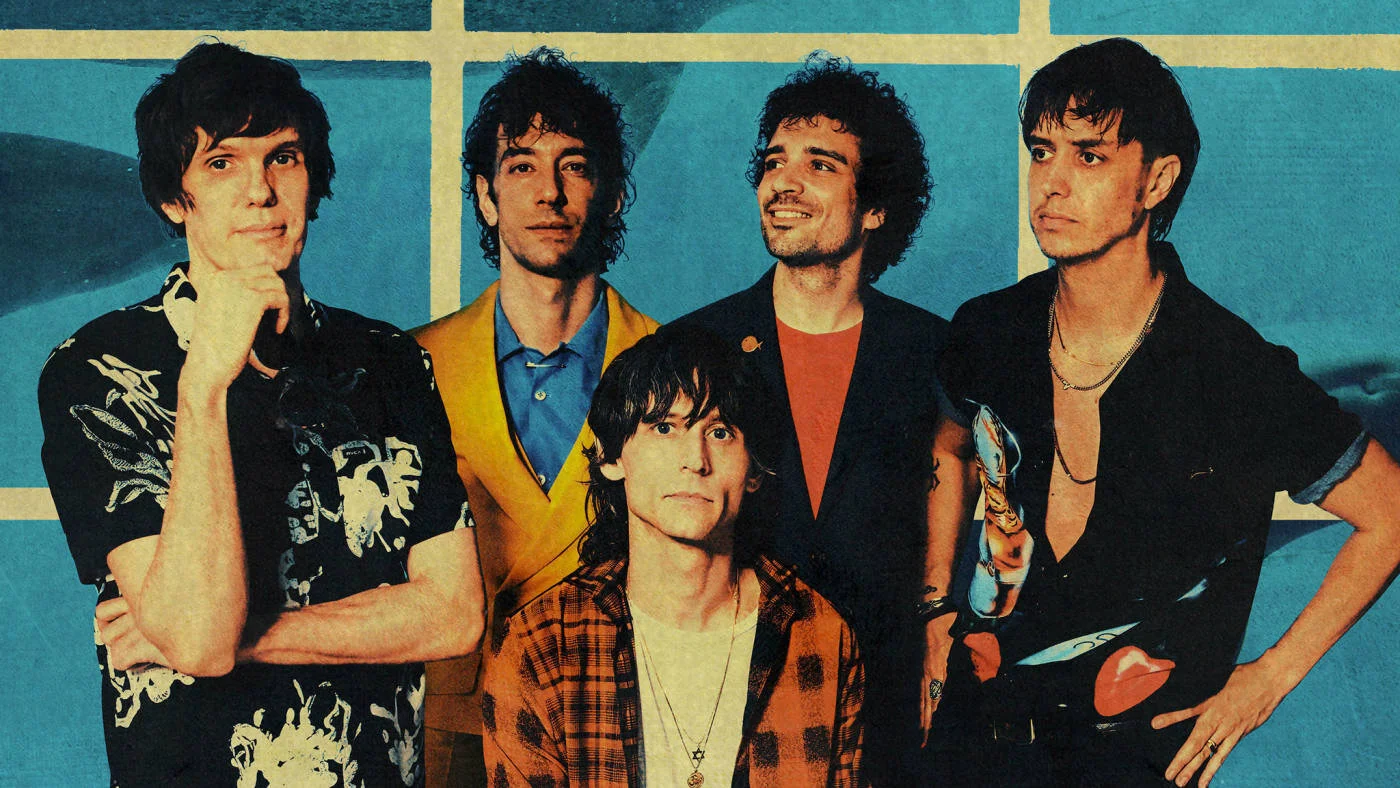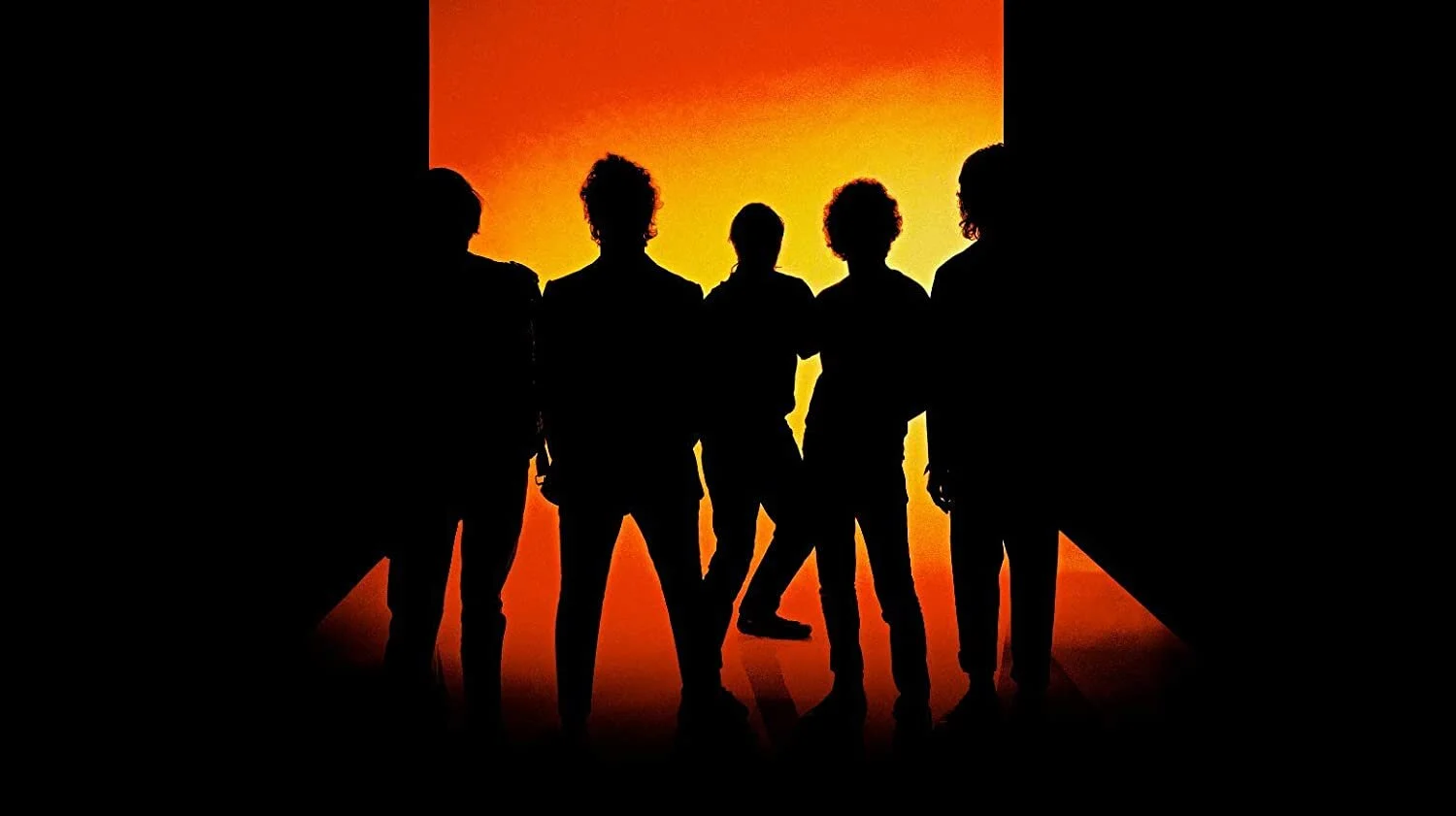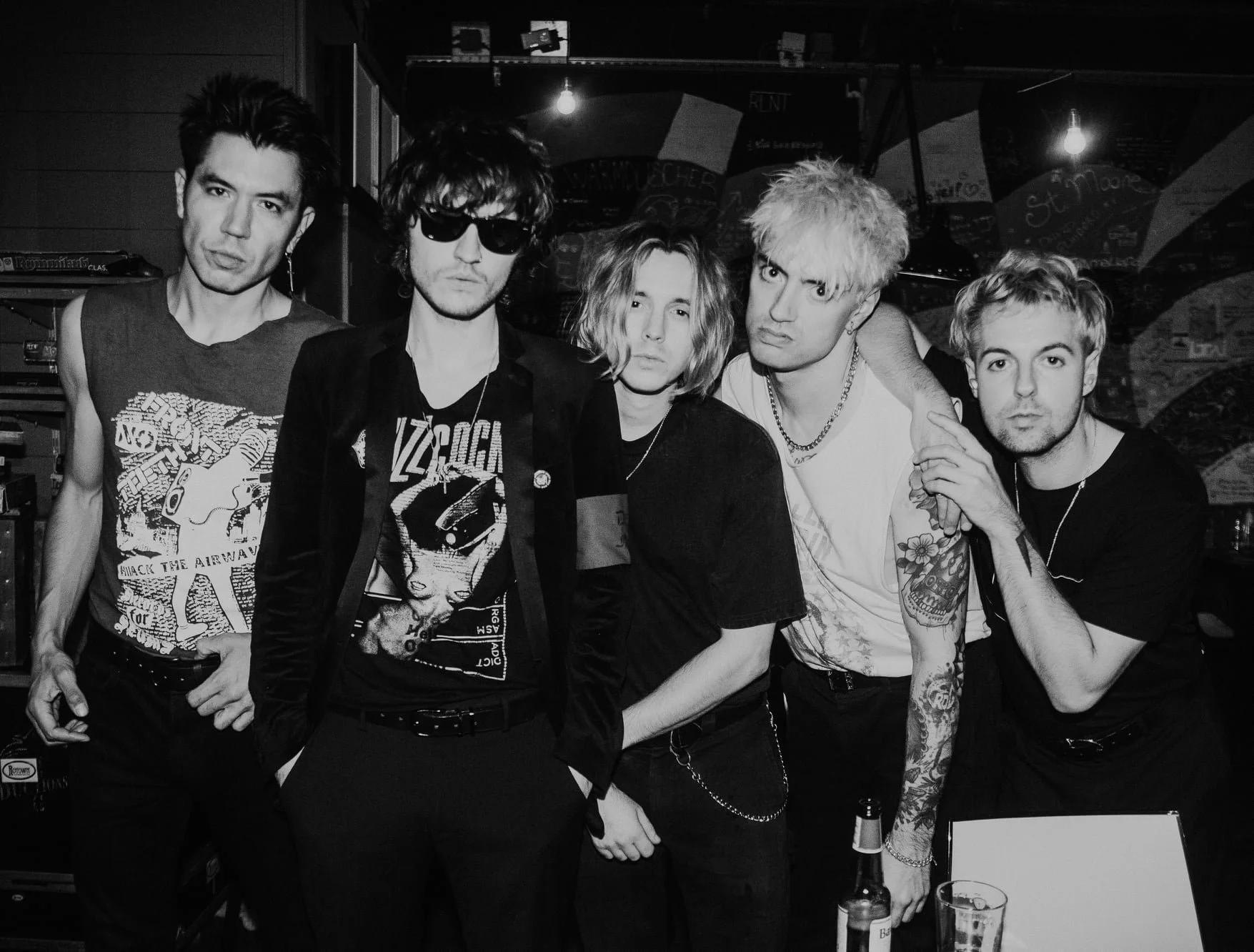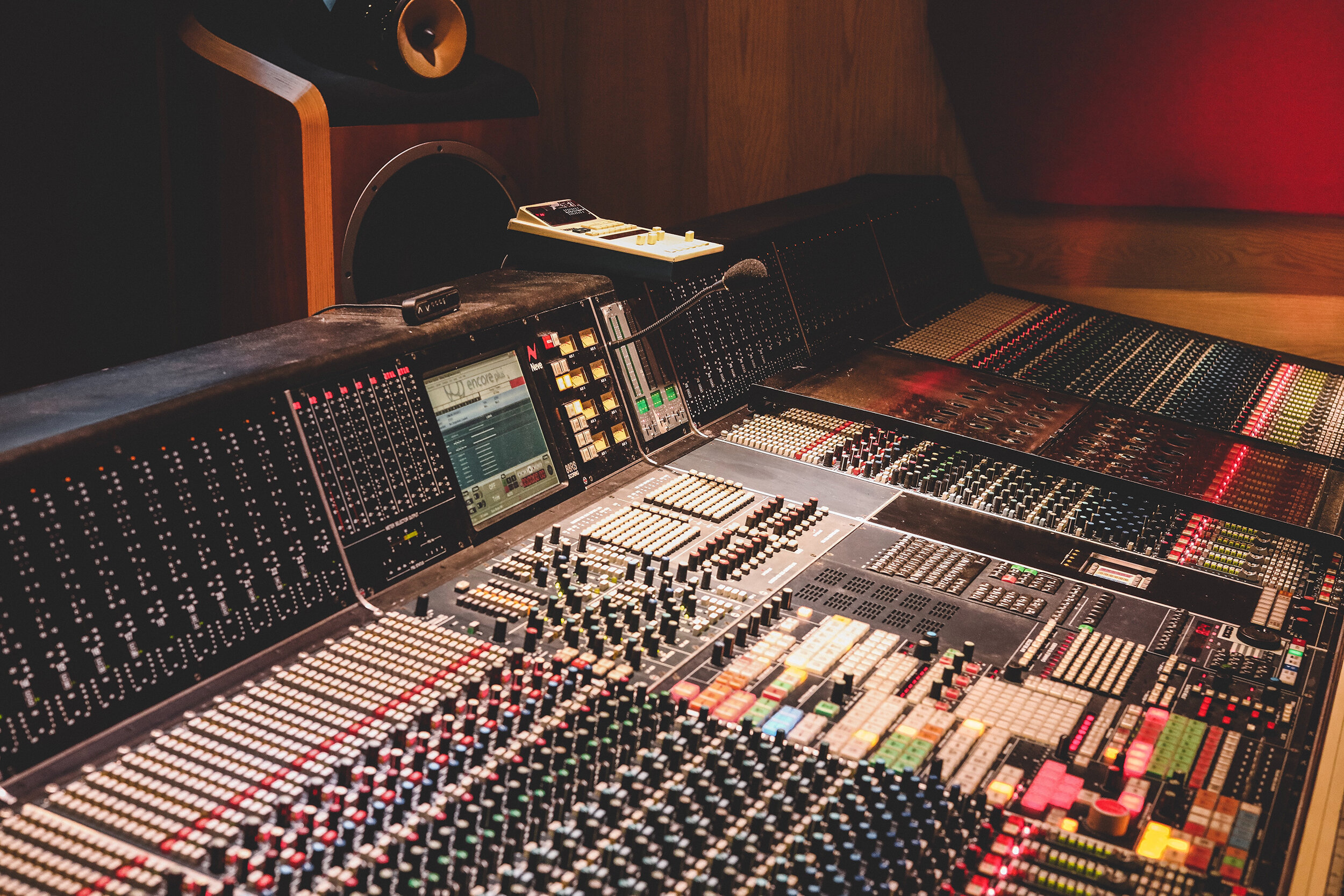The New Abnormal of The Strokes
Your heroes are back, and they brought you a treat.
We all know the story by now. New York City, 2001 and the shocking September 11. In the middle of the panic and paranoia, The Strokes shook the world with Is This It – a reminiscence of the fondly remembered CBGB’s scene with nodes to The Velvet Underground, Television and Talking Heads.
Fast forward to 2020, the band is back with their long-awaited sixth album. This time the release coincides with another catastrophe. While the pandemic agitates the world, the music is still here, and here is the good old charm of The Strokes. Produced by Rick Rubin, The New Abnormal is a nine-track album that was recorded at Shangri-La Studio in Malibu.
It’s hard to shake off the curse of nostalgia that surrounds their comeback. And they know how to create a buzz, especially now, with the group’s first album in 7 years. Going full force, they started a year by performing a special show in NYC - their hometown on New Year’s Eve. Later they supported Bernie Sanders in New Hampshire and played a string of European shows.
Before diving deep into the sound of their most recent work, The New Abnormal catches your eye with its bright album cover, featuring Bird on Money - a painting by late neo-expressionist Jean-Michel Basquiat. Julian saw Basquiat's work in Paris when he was touring with The Voidz in 2018. “I felt the whole range of rainbow emotions.” he says. Talking about the album’s name, Jules mentioned that he was watching CNN and the governor of California commented on the wildfires that were now "the new abnormal".
Having a look on its sonic side, The New Abnormal is vital, varied and consistent slice of indie rock. The first half of the album may remind you of the ’80s, glam, dream pop and acts like David Bowie or Fleetwood Mac.
The opening track The Adults Are Talking is dazzling. The catchy and punctual drums, a cruising bassline, dueling call-response guitars, and the unmistakable, almost lullaby-like vocals. The track offers vibrancy and euphoria, and the lyrics are an electric conversation between two people whose relationship is uneasy.
Followed by Brooklyn Bridge to Chorus’s new wave, the third single from the album hits with its neon retro-futuristic keys and synths. The track is a swim in ‘80s electro waters with one of the most addictive choruses on the album.
Rolling with a gut-punch nostalgia of Bad decisions, a second single of the album, is inspired by Billy Idol’s Dancing with Myself. Sharp hooks, deep drums, flute-esque falsetto mixed with rasp vocals, Bad Decisions is an angular attack. Its melancholic chords sound atmospheric, giving flashbacks to New Order and Cure.
At the Door is another one of The Strokes’ most unique songs. Its drum-less, immense cinematic sound is about to wrench your heart. Paul Vincent Vasallo (the Strokes guitar technician) had played a riff to the band in the rehearsal room, and that’s how At the Door was brought to life. The music video for the first single of The New Abnormal was created by Mike Burakoff (who also worked on MGMT’s When You Die).
Followed by Selfless - a mesmerizing nod to Beach House (named by Jules in a 2009 interview as one of his favorite bands), the track bleeds with Cars-style guitars. The song is quiet and personal, bringing Stevie Wonder-esque vibes closer to the end. When talking about the song, The Strokes shared some thoughts on it:
Fab: My drums sound great! That’s amazing. It sounds like a sugar packets falling on.
Nikolai: That’s crazy how we recorded that before. Sugar packets as drum track, that’s weird that you say that.
Albert: That actually kind of took me back, I remember being in the room, so nice, just a light and a sun.
Talking about Eternal Summer the band mentioned that it took the longest and hardest to finish. The Strokes credit Love My Way by Psychedelic Furs for the verse melody, making this song a highlight of the album. The lush disco pulse of Eternal Summer is a psychedelic journey. Sometimes it can remind you of Prince or Tame Impala, bringing Pink Floyd in the chorus, and The Voidz in the outro. Its guitar distortions mixed with falsetto vocals are riding high in the sky full of stars. The band also discussed the song:
Fab: Oh, this one is a favorite of mine.
Albert: You feel Rick over the whole record, but that one specially… We played another verse for 20 minutes, and then the chorus for 20 minutes, to find cool parts and put it together. We’ve never done that.
Nick: That’s true, also there was a thing of Rick, wanting to loop Julian’s voice, and keep on playing it as like a percussive hook, which was something that we’ve never done before.
Albert: It was rad too!
Nikolai: I also remember when we did overdubs sitting in a room with Rick and he just said “Okay, play something”. And I think it was like one of the earliest songs, and it was kind of… come up with just something in front of Rick Rubin.
Albert: Were we all with you? Were we there?
Nikolai: I was by myself with Rick Rubin. And it was just kind of listening to me play, judging every part and every note, waiting for something cool to happen on that chorus.
Julian: Play for me, Nikolai!
On the next song Why are Sundays so depressing? The Strokes give a nod to Lou Reed and The Velvet Underground. While talking about Not the Same Anymore Jules shares: “That one is maybe one of my favorites.” The song adopts a high-pitched falsetto and several mid-tempo highlights, making it one of The Strokes’ most unique tracks.
Finally, Ode to The Mets extrapolates keys and rhythm while escalating in intensity, providing a soothing closure to tear apart. The Strokes shared some thoughts on it:
Julian: We should talk about the name. I want to say that I wanted to remove the word “Mets”.
Nick: What do you mean you wanted to?
Fab: I feel like I was the one who like convinced you otherwise.
Julian: Yeah, I was down, but it was after The Mets had lost, like the painful game 7…
Fab: I’ve never payed attention to it much… The team, it’s like something that you set your heart to, that you love unconditionally, but it continues to disappoint you, which was kind of what I gathered from the song too.
Julian: The guys on a team, they gonna love that.
Fab: Sorry (laughs)
Julian: Team of my youth! Yeah, it was funny… I wrote it on the subway platform waiting for the train. That’s why we called it that. But I assume it would change, and somehow it never did.
Nick: I remember you were talking about the title, cause that title, we had it for a while. And then when we were finishing up the album, you were talking about changing it. And we were all like – Why would we change it? We all loved it – and then I felt like you were pleased that we all loved it (?)
Julian: I mean, I thought we were gonna call it just like “Ode” or something.
Nick: I think it’s a great title, man! And I love Fab’s description of the symbolism of The Mets.
Julian: They should play it after every Mets’ loss. You know, they have like celebratory songs for when teams win. […] I believe it was the game against the San Francisco Giants, it was like a Wild Card, we had no idea if that was a Wild Gard Game, when it’s like a one game, sudden death game…
The New Abnormal is a bright, intimate album - an instant classic at the edge of the universe. The ability to create an emotional bond with its audience becomes one of the greatest pleasures. The album is full of good surprises, showcasing the band’s vision, their true selves and also, the sound of moving on. The haunt of their first albums is still big, but out of it all, like a Phoenix who burns to revive in this beautiful music, here’s the sweet pain - a fuel for the art.
Follow The Strokes and catch them live:









